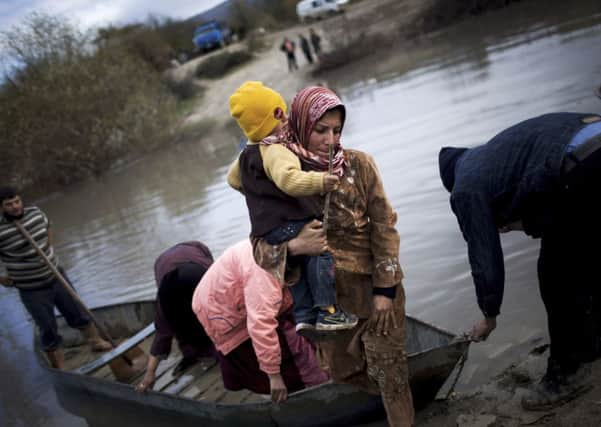Azeem Ibrahim: Iraq and Syria need UN peacekeeping


Yes, the governments of Iraq and Syria still exist, and yes there are still parts of their state apparatuses that still function adequately in some geographical areas. But large swathes of the Levant are now de facto stateless.
What does this mean? A political philosophy professor would tell you that this means that in these lands there is now a war of all against all, where no-one can feel secure. The reality is, of course, different. But not very. Instead, it’s a war of Sunnis versus Shias, and woe betide smaller religious minorities like Christians or Mandeans; a war of secular nationalists versus religious fundamentalists and pity the smaller, unaligned political groupings; a war of one ethnic group against the next; and, of course, a war of naked power-play between antagonistic regional powers like Iran or Saudi Arabia, and antagonistic western interests, like the US or Russia, each with their respective allies and clients that they fund and train.
Advertisement
Hide AdAdvertisement
Hide AdSo is everyone out to kill everyone else who is not “like them”? Most of the fighters may be. But the nine million internal and external civilian refugees of the Syrian civil war, and the as of yet uncounted but undoubtedly large number of civilian refugees from northern Iraq, stand as testimony that the majority of the population would rather avoid the conflict altogether. Whatever their politics, this majority is simply not willing to take up arms against their neighbours. And so, they have to move out of the way of those with the guns.
But the guns have been already shot – and the animosity between neighbours is now written in blood. Any local militia, whether brought together by creed or by ethnicity, must fight. And they must take the fight to their enemies. If they do not, they are assured of retributive attacks that would seek their own death, the death of their families, and the extermination of their communities. Regardless of the original reasons for fighting, and regardless of whether they can ever be achieved now, everyone is in a position of having to fight for their own survival. Is there any doubt that the Alawite minority of Syria would be persecuted to extinction, should the Assad regime crumble tomorrow? This is what a vicious cycle of endless violence looks like. But is there nothing that can be done about it? We must consider any idea that could help break this cycle. Here are some thoughts:
First, the international community must come together to create an environment that allows for peace. The West and Russia must understand that, whatever short-term interests they may have with regards to Iraqi oil or Syrian weapons contracts, the longer term consequences of state failure in the region will be much more expensive, and will pose a serious risk to their own security. And regional powers like Iran, Egypt and Saudi Arabia must understand that their own countries are made up of the same combustible mix of antagonistic religious and ethnic groups as in the war zones. This conflict really can spill over into their own territories at any time. These powers must stop fanning the flames of conflict as soon as possible. The good news is that this has already started happening, and in surprising ways.
Secondly, the reality that the states of Iraq and Syria have failed in these territories must be acknowledged, and the reasons why this has happened must be recognised. These states, like many in the region, have been created out of the carcases of Western and Ottoman empires by drawing straight lines on maps, with little regard for local political realities. This has often thrown together populations ill-suited to come together to form the unified civil societies necessary to sustain modern states. The hopes to maintain unitary states as they are now may well have to be abandoned. There is very little justification for there not being a Kurdish independent state, for example. And the territory claimed by Isis may well make more sense as a separate state – though ideally not one run by a group that is too extreme for al-Qaeda.
And thirdly, we must create the conditions on the ground that would allow those who fight defensively to stop fighting, while we pursue the active, destabilising elements. This may well require UN peacekeeping, or even something as strange and exotic as some kind of co-operative military effort between Washington, Tehran and everyone in between. As the situation is developing, such a proposition is slowly but surely moving away from the land of pure fantasy to a politically necessary and potentially viable option. This is surely a sign that things are beginning to look desperate, but also a sign that some of the relevant actors are prepared to do the unthinkable in order to secure the right outcomes. There may yet be hope.
• Dr Azeem Ibrahim is a research professor at the Strategic Studies Institute, US Army War College and International Security Lecturer at the University of Chicago